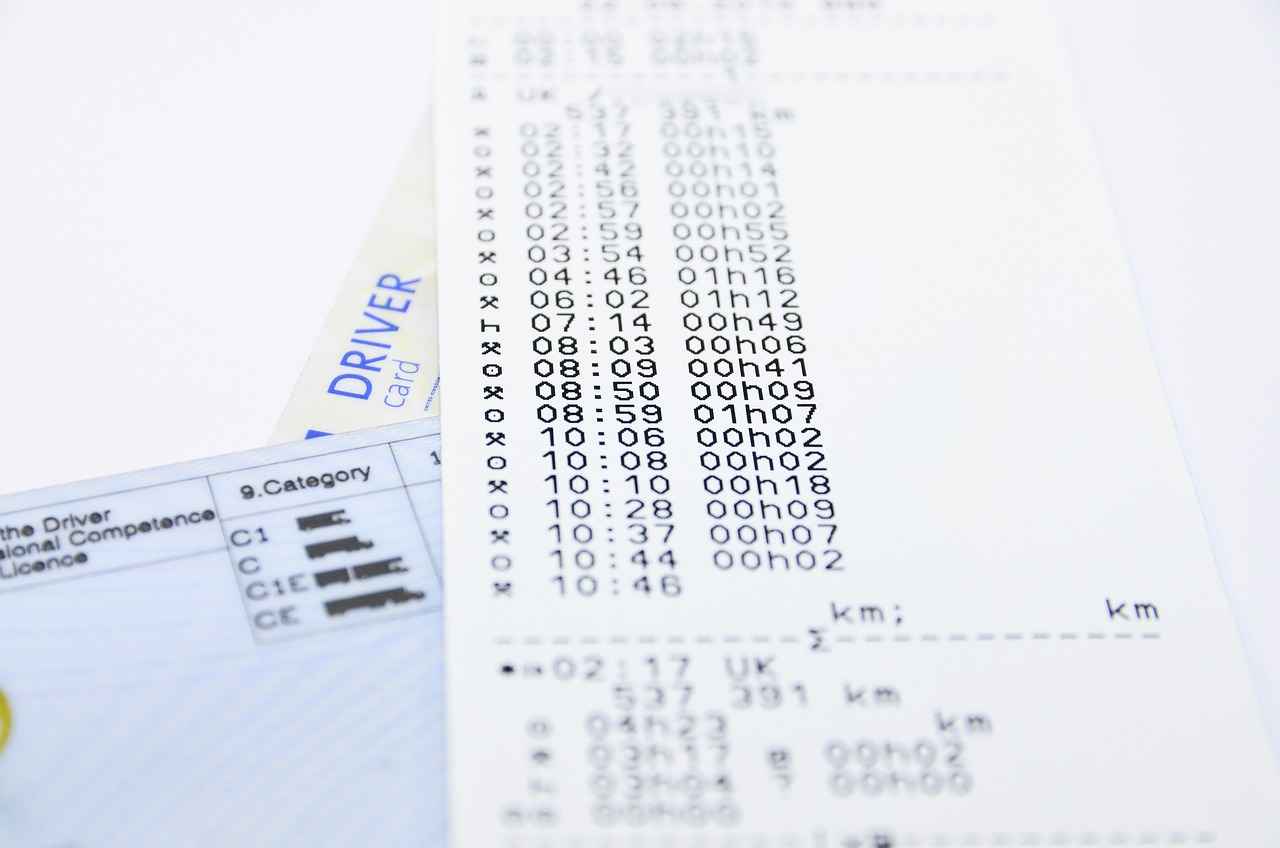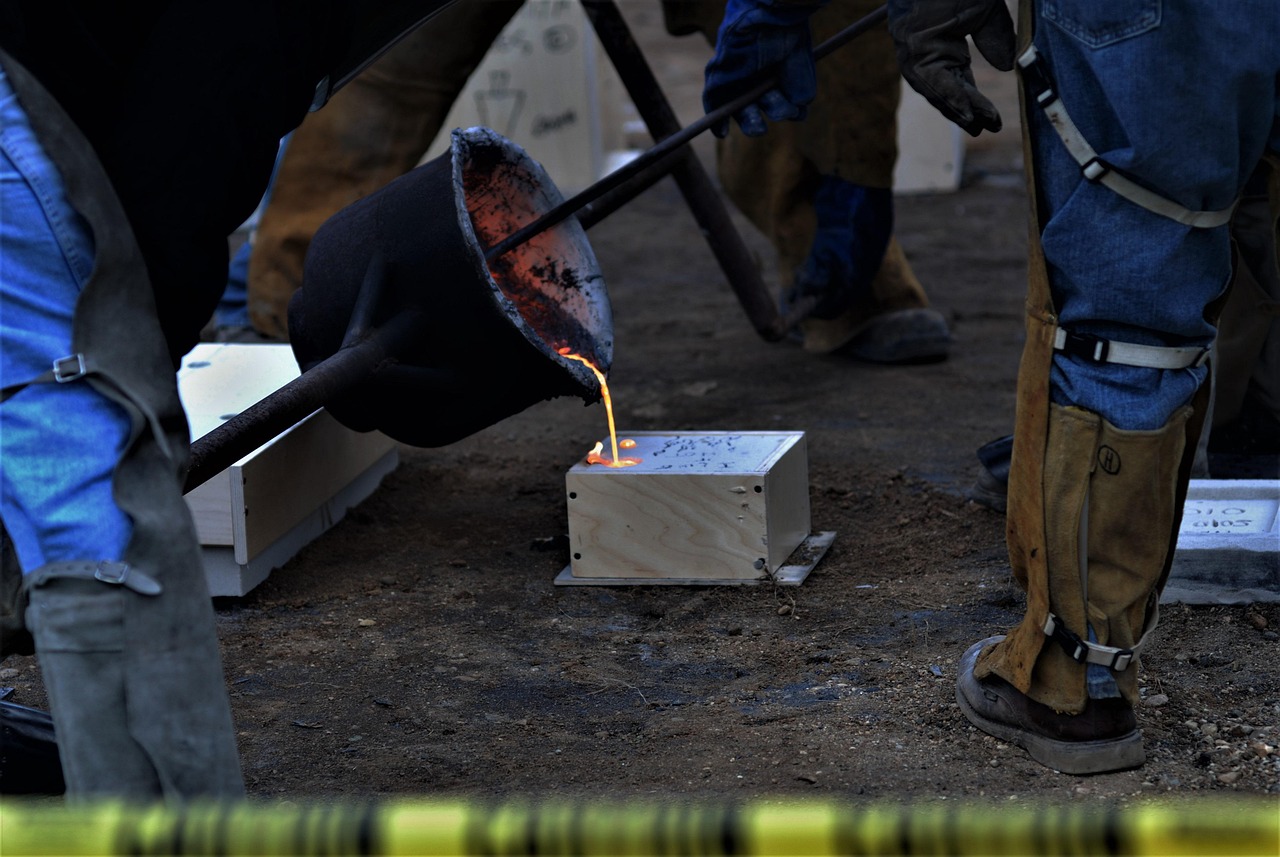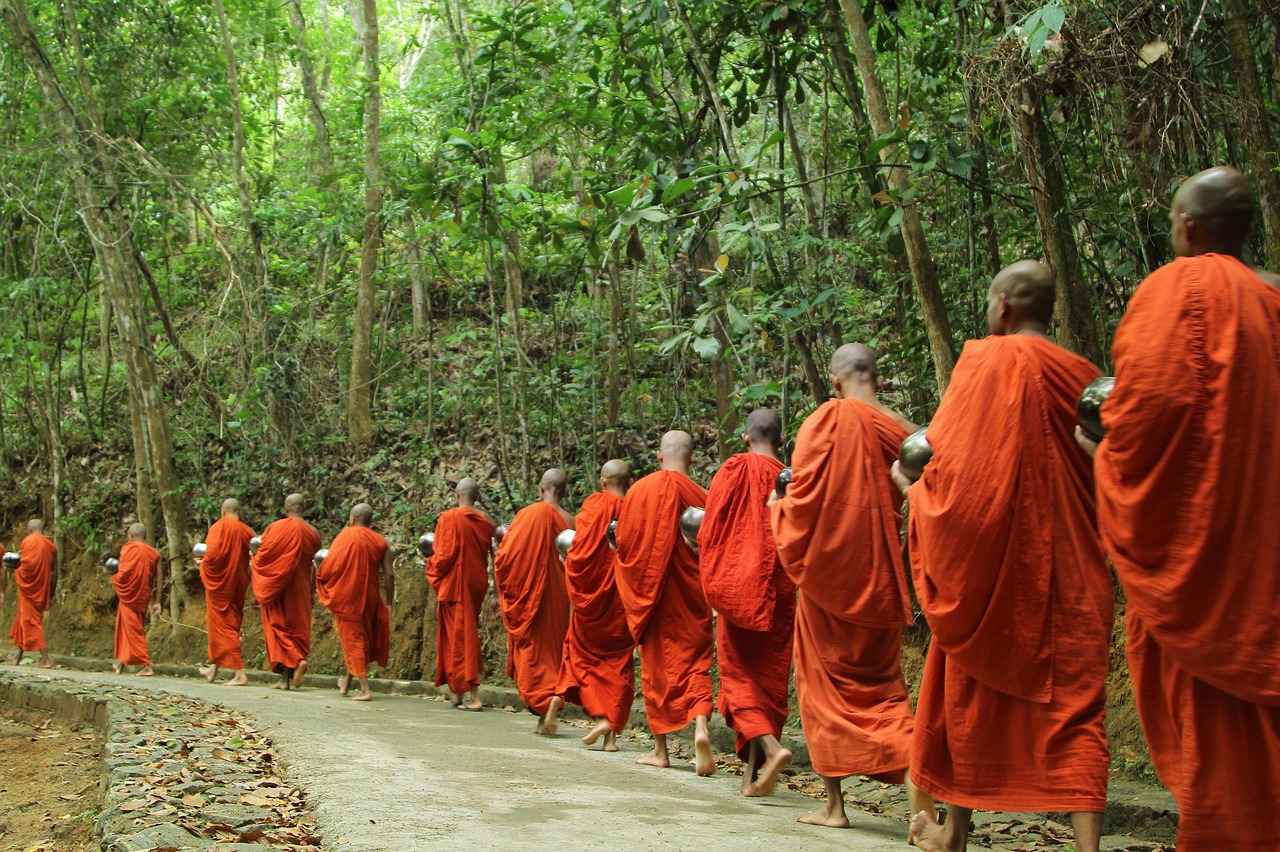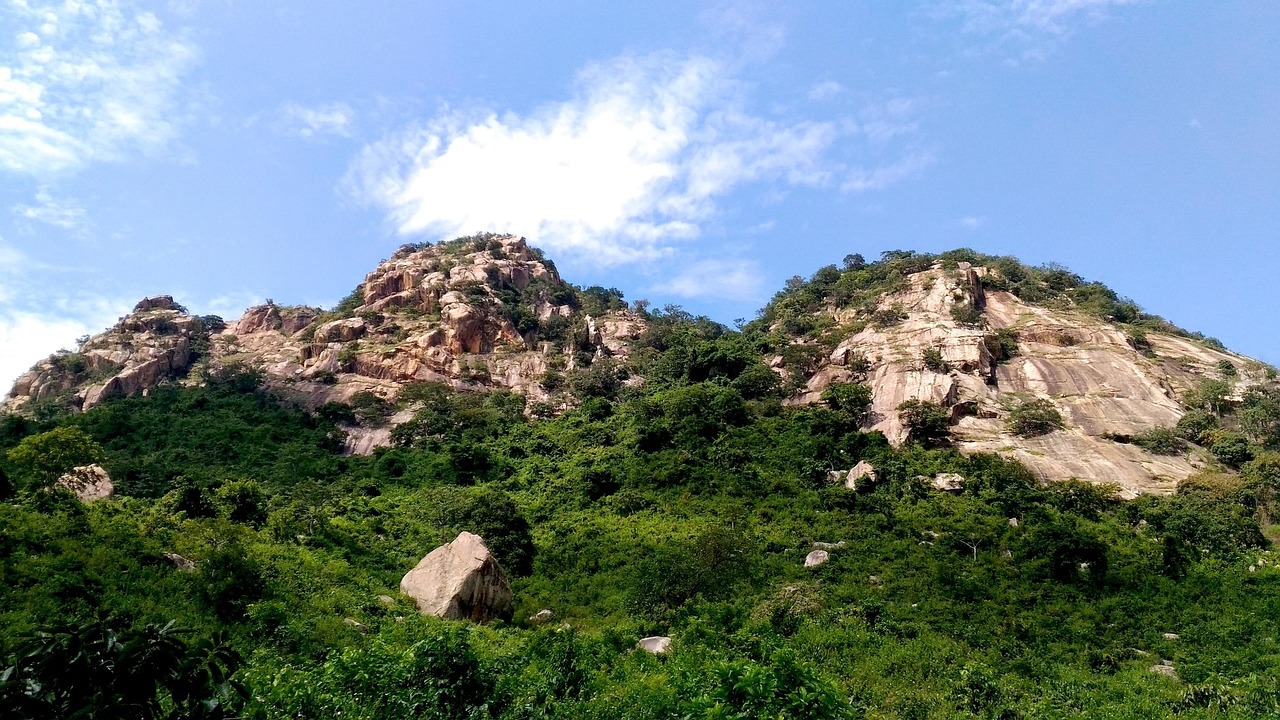This article serves as a comprehensive guide on how to obtain a caste certificate in West Bengal. It outlines the necessary steps, documentation, and important insights to ensure a smooth application process.
Understanding Caste Certificates
Caste certificates are vital documents in India, used to identify an individual’s caste or community. They play a significant role in various government schemes, educational opportunities, and job reservations.
Eligibility Criteria for Caste Certificate
Before applying, it’s essential to understand the eligibility requirements. Generally, individuals belonging to Scheduled Castes (SC), Scheduled Tribes (ST), and Other Backward Classes (OBC) can apply.
- Residential Requirements: Applicants must be residents of West Bengal.
- Proof of Residence: Valid documents like Aadhar card or voter ID are necessary.
- Duration of Residency: A minimum of 6 months of residency in West Bengal is often required.
Community Verification
Community verification is a key step in the application process. Applicants need to provide evidence of their caste or community affiliation, which may involve obtaining a certificate from local authorities.
Documents Required for Application
Gathering the correct documents is crucial. The following are typically required:
- Identity Proof: Acceptable forms include Aadhar card, passport, or driver’s license.
- Community Certificate from Local Authority: This certificate validates the applicant’s caste.
Application Process for Caste Certificate
The application process can be done online or offline.
- Online Application Procedure: Visit the official state portal to fill out the application form.
- Offline Application Procedure: Submit the application at the local administrative office along with required documents.
Processing Time and Fees
Understanding the timeline and costs involved is essential. Typically, processing takes about 15-30 days, and fees may vary based on local regulations.
Common Issues and Solutions
Applicants may encounter challenges such as application rejections or processing delays. It’s advisable to check for completeness of documents and follow up regularly.
Conclusion and Final Tips
In conclusion, obtaining a caste certificate in West Bengal requires careful preparation. Ensure all documents are in order and follow the guidelines closely for a successful application.

Understanding Caste Certificates
Caste certificates play a crucial role in the social and administrative framework of India. These documents serve to officially recognize an individual’s caste or community, which can impact various aspects of life, including education, employment, and social welfare benefits.
In India, caste is a significant determinant of an individual’s identity and can influence their access to opportunities. The caste certificate acts as a formal proof of this identity, which is essential for availing of reservation benefits in educational institutions and government jobs. It is also used in various legal and administrative processes, making it a vital document for individuals from marginalized communities.
In the educational context, students from certain castes may be eligible for scholarships, fee waivers, or admission quotas. Similarly, in the job market, a caste certificate can help candidates secure positions that are reserved for their community under affirmative action policies. This is particularly relevant in states like West Bengal, where caste-based reservations are implemented to promote social equity.
Moreover, the caste certificate is often required for various government schemes aimed at uplifting underprivileged communities. These schemes may include financial assistance, housing benefits, and healthcare services, all aimed at improving the living standards of those belonging to disadvantaged castes.
In summary, caste certificates are not merely bureaucratic documents; they are essential tools for ensuring social justice and equality in a diverse society like India. Understanding their significance and the processes involved in obtaining them is vital for individuals seeking to navigate the complexities of caste-based identity and benefits.

Eligibility Criteria for Caste Certificate
Before embarking on the journey to apply for a caste certificate, it is essential to grasp the eligibility requirements. Understanding these criteria ensures that applicants are well-prepared and meet all necessary conditions to avoid delays or rejections in their application process.
The following points outline who can apply for a caste certificate in West Bengal and the specific criteria that must be fulfilled:
- Age Requirement: Applicants must be at least 18 years old to apply for a caste certificate independently. Minors may require parental or guardian consent.
- Residential Status: It is imperative that applicants are residents of West Bengal. Proof of residence must be provided, demonstrating that the applicant has lived in the state for a specified duration.
- Caste or Community Affiliation: Applicants must belong to a recognized caste or community. This affiliation needs to be validated through community verification processes.
- Documentation: Proper documentation is a must. Applicants should prepare to submit identity proof, residential proof, and any certificates from local authorities confirming their caste or community status.
In addition to these general criteria, applicants should be aware of specific conditions that may apply based on their individual circumstances. For example:
- Individuals from Scheduled Castes (SC), Scheduled Tribes (ST), and Other Backward Classes (OBC) must provide additional documentation to substantiate their claims.- The application may require a community certificate from a local authority or a recognized institution.
By ensuring that all eligibility criteria are met, applicants can streamline their application process and increase the likelihood of a successful outcome. It is highly recommended to consult with local authorities or legal advisors if there are any uncertainties regarding eligibility.
Residential Requirements
When applying for a caste certificate in West Bengal, residency plays a pivotal role in determining eligibility. The state government has established specific residential criteria that applicants must meet to ensure that the benefits of caste certificates are extended to the rightful individuals. This section elaborates on the significance of residency in West Bengal, outlining the key aspects that potential applicants need to be aware of.
Firstly, it is essential to understand that applicants must be permanent residents of West Bengal. This means that they should have established their residence in the state and should be able to provide proof of their stay. The government aims to streamline the process to prevent misuse of caste certificates by individuals who may not belong to the state.
Moreover, the duration of residency is a crucial factor. Typically, applicants are required to have lived in West Bengal for a minimum period, often ranging from six months to five years, depending on specific community guidelines. This duration is assessed to ensure that applicants have a genuine connection to the state and its communities.
To substantiate their residency claims, applicants must submit valid documents that serve as proof of residence. Acceptable documents may include:
- Utility bills (electricity, water, etc.)
- Lease agreements or property ownership documents
- Government-issued ID with the current address
- Bank statements that list the applicant’s address
In conclusion, fulfilling the residential requirements is a fundamental step in the application process for a caste certificate in West Bengal. By ensuring that applicants meet these criteria, the government aims to maintain the integrity of the caste certification system and support those who genuinely belong to the communities within the state.
Proof of Residence
When applying for a caste certificate in West Bengal, one of the fundamental requirements is to provide valid proof of residence. This document is essential as it verifies that the applicant resides within the state, which is a crucial criterion for eligibility.
The following documents are typically accepted as proof of residence:
- Utility Bills: Recent electricity, water, or gas bills that display your name and address.
- Rental Agreement: A legally signed rental or lease agreement that includes your name and the property address.
- Bank Statements: Bank statements that show your name and current address, dated within the last three months.
- Government Issued IDs: Documents such as Aadhar cards, voter ID cards, or passports that have your address printed on them.
- Property Documents: Ownership documents for any property registered in your name, indicating your residence.
It is vital to ensure that the documents submitted are current and official. Any discrepancies or outdated information may lead to delays or rejection of your application. Additionally, applicants should be prepared to provide multiple forms of proof if requested by the authorities.
In summary, providing valid proof of residence is not just a formality; it is a critical step that must be completed accurately to ensure a smooth application process for obtaining a caste certificate in West Bengal. Always check with the local authority for any specific requirements or additional documents that may be necessary.
Duration of Residency
In West Bengal, the plays a significant role in determining eligibility for obtaining a caste certificate. Understanding the specific time frame required can streamline the application process and help applicants avoid potential pitfalls.
To qualify for a caste certificate, individuals must typically demonstrate that they have resided in West Bengal for a minimum of five years. This residency requirement is crucial as it establishes a connection between the applicant and the state, ensuring that the benefits of caste certification are granted to those who are genuinely part of the local community.
Moreover, the duration of residency is not just a formality; it serves several important purposes:
- Verification of Community Ties: A longer residency period often correlates with stronger ties to the local community, which is essential for community verification during the application process.
- Access to Benefits: Many government schemes and educational opportunities are available only to residents who meet the duration criteria, making it vital for applicants to be aware of this requirement.
- Reduction of Fraudulent Claims: By enforcing a residency duration, the government aims to reduce instances of fraudulent applications, ensuring that caste certificates are issued to eligible individuals only.
To prove residency, applicants may need to provide various documents such as:
- Utility bills
- Rental agreements
- Voter ID cards
- School admission records
In conclusion, understanding the required for a caste certificate in West Bengal is crucial for applicants. Ensuring that you meet this requirement not only facilitates a smoother application process but also strengthens your eligibility for various benefits tied to caste certification.
Community Verification
is an essential component of the caste certificate application process in West Bengal. This step ensures that applicants can adequately demonstrate their caste or community affiliation, which is crucial for the issuance of the certificate. Understanding the process and requirements for community verification can significantly enhance the chances of a successful application.
To begin with, applicants must gather relevant documentation that verifies their community status. This may include:
- A community certificate issued by a recognized local authority.
- Affidavits or declarations from family members attesting to the applicant’s caste.
- School records or other official documents that state the caste or community affiliation.
It is important to note that the local authority may conduct an investigation or verification process to confirm the authenticity of the documents provided. This may involve:
- Interviews with the applicant and their family members.
- Site visits to the applicant’s residence.
- Consultation with community leaders or representatives.
Applicants should be prepared to present additional evidence if requested. This could involve providing further documentation or clarifying any discrepancies that may arise during the verification process.
Moreover, maintaining transparency and honesty throughout the application process is vital. Any false information can lead to severe consequences, including rejection of the application or legal repercussions.
In conclusion, community verification is a critical step that requires careful preparation and thorough documentation. By understanding the requirements and being proactive in gathering necessary proofs, applicants can navigate this process more effectively, ensuring a smoother journey toward obtaining their caste certificate.

Documents Required for Application
Gathering the right documents is essential for a successful application for a caste certificate in West Bengal. Having the appropriate documentation not only streamlines the process but also minimizes the chances of delays or rejections. Below is a comprehensive list of necessary documents needed for the application:
- Identity Proof: Applicants must provide valid identity proof. Acceptable forms include:
- Aadhaar Card
- Voter ID
- Passport
- Driving License
- Address Proof: Proof of residence in West Bengal is crucial. Acceptable documents can be:
- Utility Bills (Electricity, Water, etc.)
- Rental Agreement
- Bank Statement
- Government-issued ID with Address
- Community Certificate: A community certificate from a local authority may be required. This document verifies your caste or community affiliation. It can be obtained from:
- The local Panchayat office
- Municipal Corporation
- Revenue Department
- Affidavit: An affidavit declaring your caste and stating that you belong to the specified community may be necessary. This should be notarized.
- Photographs: Recent passport-sized photographs are often required. Ensure they meet the specified size and quality standards.
Each of these documents plays a pivotal role in establishing your eligibility for a caste certificate. It is advisable to keep multiple copies of each document for your records and to facilitate the application process. Make sure all documents are up-to-date and clearly legible to avoid any complications during the submission.
In conclusion, being well-prepared with the necessary documentation is a key step in ensuring a smooth and efficient application process for obtaining a caste certificate in West Bengal.
Identity Proof
is a critical component of the application process for obtaining a caste certificate in West Bengal. It serves as verification of an applicant’s identity, ensuring that the information provided is accurate and legitimate. In this section, we will explore the various forms of identity proof that are accepted, as well as their significance in the application process.
To successfully apply for a caste certificate, applicants must present valid identity proof. The following documents are generally accepted:
- Aadhaar Card: This is one of the most widely accepted forms of identity proof in India. It provides a unique identification number and is linked to biometric data.
- Voter ID: A valid voter identification card is another accepted form of identity proof, which confirms the applicant’s identity and citizenship.
- Passport: A government-issued passport is a reliable document that can be used to establish identity and nationality.
- Driving License: A valid driving license is also recognized as a form of identity proof, as it includes the holder’s photograph and personal details.
- Government Employee ID: For individuals employed by the government, an official ID card can serve as valid identity proof.
It is important to ensure that the submitted identity proof is current and not expired. In addition, the name on the identity document should match the name provided in the application form to avoid discrepancies that could lead to delays or rejections.
In summary, presenting valid identity proof is an essential step in the application process for a caste certificate in West Bengal. By ensuring that the correct documents are submitted, applicants can facilitate a smoother verification process and increase their chances of a successful application.
Community Certificate from Local Authority
Obtaining a community certificate from a local authority is a crucial step in the application process for a caste certificate in West Bengal. This certificate serves as proof of an individual’s caste or community affiliation, which is often required for various government services, educational opportunities, and job reservations.
The process to obtain this certificate can vary slightly depending on the local authority, but generally follows a few key steps:
- Visit the Local Authority Office: Start by visiting the local government office or municipality where you reside. This is typically where community certificates are issued.
- Fill Out the Application Form: Request the application form for a community certificate. Ensure that you fill it out accurately, providing all necessary details.
- Submit Required Documents: Along with the application form, you will need to submit various documents. These may include:
- Proof of identity (e.g., Aadhar card, voter ID)
- Proof of residence (e.g., utility bills, rent agreements)
- Any other documents that establish your community affiliation (e.g., family records)
- Verification Process: After submission, the local authority will initiate a verification process. This may involve background checks and interviews to confirm your community status.
- Receive the Certificate: Once your application is approved, you will receive your community certificate. This document is essential for your caste certificate application.
Significance of the Community Certificate: The community certificate is not just a formality; it plays a vital role in ensuring that individuals receive their rightful benefits and opportunities based on their caste or community. It acts as a safeguard against discrimination and helps in the promotion of social justice.
In conclusion, securing a community certificate from a local authority is a fundamental step in the journey to obtaining a caste certificate. By understanding the process and preparing the necessary documentation, applicants can streamline their application and avoid potential hurdles.

Application Process for Caste Certificate
The application process for obtaining a caste certificate in West Bengal is crucial for individuals who require this document for various purposes, including educational and employment opportunities. This guide outlines the specific steps to ensure a smooth application experience.
Step 1: Determine Eligibility
Before initiating the application, it is essential to confirm your eligibility. Generally, applicants must be residents of West Bengal and belong to a recognized caste or community. Familiarize yourself with the specific criteria set by your local authority.
Step 2: Gather Required Documents
- Identity Proof: Aadhar card, voter ID, or passport.
- Proof of Residence: Utility bills, rental agreements, or any government-issued document with your address.
- Community Certificate: Obtain a community certificate from your local authority, which verifies your caste.
Step 3: Choose Your Application Method
The application can be submitted either online or offline. Here’s how:
- Online Application: Visit the official West Bengal government portal. Fill out the application form, upload the required documents, and submit. You will receive an acknowledgment receipt.
- Offline Application: Download the application form or collect it from the local authority office. Fill it out, attach the necessary documents, and submit it in person.
Step 4: Track Your Application
After submission, you can track the status of your application through the online portal or by contacting the local office. It’s advisable to keep the acknowledgment receipt safe for future reference.
Step 5: Receive Your Certificate
Once processed, you will be notified to collect your caste certificate. Ensure that all details are correct before leaving the office.
By following these steps, you can navigate the application process for a caste certificate in West Bengal effectively. For further assistance, consider reaching out to local authorities or community organizations.
Online Application Procedure
Applying for a caste certificate in West Bengal has become significantly easier with the advent of online services. This method is often the most convenient and efficient way to submit your application, allowing you to complete the process from the comfort of your home. Below, we provide a detailed guide on how to navigate the online application portal effectively.
- Accessing the Portal: Begin by visiting the official West Bengal government website dedicated to caste certificate applications. Look for the section labeled “Caste Certificate Application.”
- Creating an Account: If you are a first-time user, you will need to create an account. Fill in the required details such as your name, email address, and mobile number. Ensure that the information is accurate to avoid any issues later on.
- Login: After creating your account, log in using your credentials. This will take you to the application dashboard where you can start the process.
- Filling Out the Application Form: Carefully fill out the online application form. Provide all necessary details, including personal information, caste details, and residential information. Double-check your inputs for accuracy.
- Uploading Documents: You will be required to upload supporting documents such as identity proof and any community certificates. Ensure that the documents are clear and legible, as poor-quality uploads may lead to delays.
- Review and Submit: Once you have filled out the form and uploaded the documents, review all the information. Make sure everything is correct before clicking the “Submit” button.
- Payment of Fees: After submission, you may need to pay a nominal fee for processing your application. Payment can usually be made online via various methods such as credit/debit cards or net banking.
- Tracking Your Application: After submitting your application, you can track its status through the portal. Regular updates will be provided, and you can check if any additional information is required.
By following these steps, you can ensure a smooth online application process for your caste certificate in West Bengal. This method not only saves time but also provides a systematic approach to managing your application.
Offline Application Procedure
For individuals who prefer the traditional methods of applying for a caste certificate in West Bengal, the offline application process is straightforward and manageable. This section provides a detailed overview of the steps involved, including where to submit documents and forms.
To begin the offline application process, applicants should first gather all the necessary documents. This includes:
- Identity proof (such as Aadhar card or voter ID)
- Proof of residence (like electricity bill or rental agreement)
- Community certificate from a local authority, if applicable
Once the documents are ready, applicants must locate the appropriate office to submit their application. In West Bengal, the application can typically be submitted at:
- The local Block Development Office (BDO)
- The SDO (Sub-Divisional Officer) office
- The District Collector’s office
It is advisable to visit the office during working hours, usually from 10 AM to 5 PM, and to carry both the original documents and photocopies for verification. Upon submission, applicants will receive an acknowledgment receipt, which is crucial for tracking the application status.
Additionally, applicants should be prepared to fill out the required forms accurately. Any discrepancies can lead to delays or rejections. It is recommended to check for any specific requirements or forms on the official government website or directly inquire at the office.
After submission, the processing time may vary, but applicants can expect to receive their caste certificate within a few weeks. For any follow-ups, it is beneficial to keep the acknowledgment receipt handy.
In conclusion, the offline application procedure for obtaining a caste certificate in West Bengal is a reliable option for those who prefer a hands-on approach. By ensuring that all documents are in order and following the outlined steps, applicants can navigate the process smoothly.

Processing Time and Fees
Understanding the timeline and costs involved in obtaining a caste certificate is crucial for applicants in West Bengal. This section provides a detailed overview of the expected processing times and any associated fees, ensuring that applicants are well-informed throughout the application process.
- Typical Processing Duration
The processing time for a caste certificate can vary significantly based on several factors, including the local authority’s efficiency and the completeness of the application. Generally, applicants can expect to receive their caste certificate within 30 to 45 days after submission. However, delays may occur due to incomplete documentation or high application volumes.
- Fee Structure for Application
Understanding the fee structure is essential for budgeting purposes. In West Bengal, the fees for obtaining a caste certificate typically range from ₹100 to ₹500, depending on the local authority and the specific circumstances of the application. It is advisable to confirm the exact fee with the relevant office before applying.
- Additional Charges
In some cases, additional charges may apply if applicants require expedited processing or if they need to submit supplementary documents. These fees can vary, so it is recommended to inquire about any potential extra costs when submitting the application.
In conclusion, being aware of the processing times and fee structures can significantly aid applicants in planning their applications effectively. By preparing all necessary documents and understanding the associated costs, applicants can enhance their chances of a smooth and timely application process.
Typical Processing Duration
When applying for a caste certificate in West Bengal, understanding the processing times is crucial for planning and expectations. The time it takes to receive your caste certificate can vary significantly based on several factors, including the completeness of your application, the verification process, and the workload of the local authorities.
On average, applicants can expect a processing time of 2 to 6 weeks from the date of submission. However, this duration is not set in stone and may fluctuate based on the following factors:
- Completeness of Application: Submitting all required documents and forms correctly can expedite the process. Incomplete applications may lead to delays as officials may require additional information.
- Verification Process: The local authority must verify the information provided in your application. This can involve checking your residency, community affiliation, and identity, which can take additional time.
- Workload of Local Authorities: During peak application periods, such as after school admissions or government job announcements, processing times may be longer due to increased demand.
To ensure a smoother experience, applicants are advised to:
- Double-check all submitted documents for accuracy.
- Keep a copy of the application and all supporting documents.
- Regularly follow up with the local authority regarding the status of the application.
In conclusion, while the average processing time for a caste certificate in West Bengal is typically between 2 to 6 weeks, various factors can influence this timeline. Being well-prepared and proactive can significantly enhance the efficiency of the application process.
Fee Structure for Application
When applying for a caste certificate in West Bengal, understanding the fee structure is crucial for effective budgeting. The fees associated with the application process can vary based on several factors, including the type of certificate requested and the local authority processing the application.
Typically, the fees for obtaining a caste certificate may include:
| Type of Fee | Estimated Amount (INR) |
|---|---|
| Application Fee | 100 – 500 |
| Verification Fee | 50 – 300 |
| Service Charge (if applicable) | 20 – 100 |
Important Notes:
- Fees may vary by district and local authority, so it is advisable to check with the relevant office for exact amounts.
- Some applicants may be eligible for fee waivers or reductions, especially in cases of financial hardship.
- Payment methods can include online transactions, bank drafts, or cash, depending on the local authority’s guidelines.
Being aware of these fees not only helps in planning your finances but also ensures that you are prepared for any additional costs that may arise during the application process. It is recommended to keep all payment receipts and documents organized, as they may be required for future reference or verification.

Common Issues and Solutions
When applying for a caste certificate in West Bengal, applicants may encounter a variety of challenges that can complicate the process. This section aims to identify these common issues and offer practical solutions, ensuring that applicants can navigate the application process smoothly and efficiently.
Many applicants face obstacles that can lead to frustration and delays. These challenges often stem from documentation issues, misunderstandings about eligibility, and procedural complexities. Recognizing these potential pitfalls is the first step toward a successful application.
- Incomplete Applications: One of the most frequent reasons for delays is submitting an incomplete application. Ensure that all required documents are included before submission.
- Incorrect Documentation: Providing the wrong type of identity proof or community certificate can lead to rejection. Always double-check the specific requirements for your application.
Many applicants are unsure about their eligibility for a caste certificate. This confusion can arise from:
- Residential Criteria: Applicants must meet specific residency requirements. Familiarize yourself with the criteria to avoid unnecessary rejections.
- Community Verification: Applicants may struggle to prove their caste affiliation. It’s essential to gather all necessary documentation that verifies your community status.
Processing delays can be a significant source of frustration. To mitigate this issue:
- Follow Up Regularly: Keeping in touch with the local authority can help you stay informed about your application status.
- Be Patient: Understand that processing times can vary; patience is key during this phase.
Rejections can be disheartening. Common reasons include:
- Insufficient Proof of Community: Ensure that you have adequate documentation to support your caste claim.
- Errors in the Application: Simple mistakes can lead to rejection. Review your application thoroughly before submission.
By being aware of these common issues and implementing the suggested solutions, applicants can significantly improve their chances of a successful application for a caste certificate in West Bengal.
Application Rejections
Understanding the reasons behind application rejections is essential for anyone seeking a caste certificate in West Bengal. By being aware of the common pitfalls, applicants can significantly enhance their chances of success. Below are some of the most frequent reasons for rejection and tips on how to avoid them.
- Incomplete Documentation: One of the primary reasons applications get rejected is the lack of necessary documents. Ensure that all required paperwork is submitted, including identity proof and community certificates. Double-check the list of required documents before submission.
- Eligibility Criteria Not Met: Applicants must meet specific eligibility requirements, including residency and community affiliation. Familiarize yourself with these criteria to ensure you qualify before applying.
- Incorrect Information: Providing inaccurate or misleading information can lead to immediate rejection. It’s crucial to fill out all forms carefully and truthfully.
- Failure to Respond to Queries: Sometimes, the authorities may require additional information or clarification. Ignoring these requests can result in rejection. Always respond promptly to any inquiries from the local authority.
- Not Following the Correct Application Process: Whether applying online or offline, it’s important to follow the prescribed procedure. Familiarize yourself with the steps involved in the application process to avoid mistakes.
To improve your application’s chances of approval, consider the following practical insights:
1. Gather all documents beforehand.2. Review eligibility criteria thoroughly.3. Fill out forms accurately and completely.4. Keep communication open with the local authority.5. Follow up regularly on the status of your application.
By being proactive and informed, applicants can navigate the application process more effectively and minimize the chances of rejection.
Delays in Processing
Experiencing delays in the processing of your caste certificate can be a frustrating situation for many applicants. Whether you are applying for educational benefits, government schemes, or job opportunities, a timely issuance of this certificate is crucial. Here are some effective strategies to follow up on your application and resolve any delays:
- Stay Informed: Regularly check the status of your application through the official website or local office. Many authorities provide an online tracking system that allows you to monitor the progress of your application.
- Contact the Relevant Authorities: If you notice that your application is taking longer than expected, do not hesitate to reach out to the local office where you submitted your application. Make sure to have your application number handy for reference.
- Be Polite and Patient: When following up, maintain a courteous tone. Understand that processing delays can occur due to various reasons, such as high application volumes or administrative issues.
- Gather Necessary Documentation: If your application is delayed due to missing documents, promptly provide any required information. This can help expedite the process.
- Seek Assistance from Local Representatives: If you continue to face challenges, consider reaching out to your local representative or community leader. They may have insights or can assist in expediting your application.
By employing these strategies, you can effectively manage the anxiety that comes with delays and work towards a swift resolution. Remember, persistence and communication are key in navigating the process of obtaining your caste certificate.

Conclusion and Final Tips
In summary, securing a caste certificate in West Bengal is a process that demands attention to detail and a thorough understanding of the necessary steps involved. This guide emphasizes the importance of being well-prepared and informed to ensure a smooth application experience.
Here are some key takeaways to consider when applying for a caste certificate:
- Research the Requirements: Before starting your application, familiarize yourself with the eligibility criteria and required documents. This will save you time and prevent unnecessary delays.
- Gather All Necessary Documents: Ensure that you have all required documents ready, including proof of identity, residence, and any community certificates. Incomplete applications are a common reason for rejection.
- Choose the Right Application Method: Decide whether to apply online or offline based on your convenience. Online applications are usually faster and more efficient, while offline methods may be preferable for those less comfortable with technology.
- Follow Up: After submitting your application, it’s advisable to follow up with the relevant authorities to check the status of your application. This can help address any potential issues promptly.
- Be Patient: Processing times can vary, so it’s important to remain patient. Understanding the typical timeline can help set your expectations.
In conclusion, obtaining a caste certificate in West Bengal is not merely a bureaucratic task; it is a vital step towards accessing various benefits and opportunities. By following the outlined steps and adhering to the tips provided, applicants can enhance their chances of a successful application. Always remember that knowledge is power, and being well-informed is your best strategy for navigating this process effectively.
Frequently Asked Questions
- What is a caste certificate?
A caste certificate is an official document that identifies an individual’s caste or community in India. It is often required for various purposes, including educational admissions, job applications, and government benefits.
- Who is eligible to apply for a caste certificate in West Bengal?
To be eligible, applicants must be residents of West Bengal and belong to a recognized caste or community. Specific criteria may vary, so it’s essential to check local regulations.
- What documents are required for the application?
Applicants typically need to provide identity proof, proof of residence, and a community certificate from a local authority. It’s crucial to gather all necessary documents to avoid delays.
- Can I apply for a caste certificate online?
Yes, many local authorities in West Bengal offer an online application process, making it more convenient for applicants. Just visit the official portal and follow the instructions.
- What should I do if my application is rejected?
If your application is rejected, review the reasons provided and address any issues. You can reapply after making the necessary corrections or clarifications.
- How long does it take to receive a caste certificate?
Processing times can vary, but on average, it may take a few weeks to a couple of months. It’s advisable to follow up with the concerned department if there are significant delays.


























































